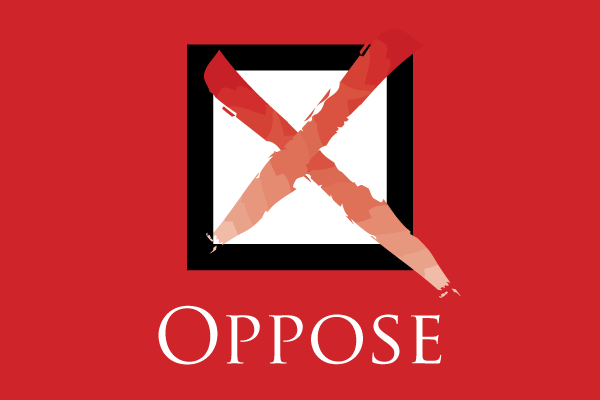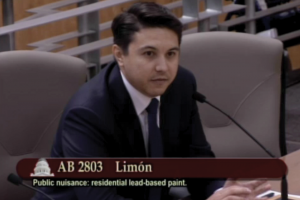 A California Chamber of Commerce-opposed bill that significantly expands public nuisance liability in California passed a Senate policy committee this week.
A California Chamber of Commerce-opposed bill that significantly expands public nuisance liability in California passed a Senate policy committee this week.
The CalChamber opposes AB 2803 (Limón; D-Goleta) because it extends public nuisance liability far beyond the seminal case law regarding lead paint pigment public nuisance liability to apply to any residence in California where lead paint is found either inside or outside the home.

Contrary to the bill’s declaration that it merely clarifies “existing public nuisance law as applied to lead-based paint,” AB 2803 greatly expands liability for paint manufacturers, retailers, and distributors by making them liable for lead-based paint for every home, in any state, regardless of whether the business even sold the paint used, when the paint was sold, whether the paint was used internally or externally, or if any injury resulted from the lead-based paint at the home.
In a recent landmark case, People v. Atlantic Richfield Company, three companies associated with promoting interior lead-based paint more than 50 years ago were held liable for public nuisance in 10 plaintiff jurisdictions.
The Sixth District Court of Appeal carefully limited liability to interior only lead-based paints, applied in pre-1951 homes, that were located only in these 10 jurisdictions. Nevertheless, the ruling opened a Pandora’s box of future claims extending well beyond the lead-paint issue.
Given that there is some risk of harm from nearly all products, especially when they are misused, misapplied or not maintained, the expansion of public nuisance liability may have a profound effect on the California business landscape for all companies associated with any product.
AB 2803 would magnify the uncertainty and potential liabilities for California companies already reeling from the landmark court decision. The bill removes the distinction between interior and exterior lead paint, removes the restriction that liability extend only to homes built before 1951, and unleashes public nuisance liability for any home across the state.
The decision in People v. Atlantic Richfield Company that imposed liability for lawful products sold or promoted 50 years ago is already significant and unprecedented. Expanding this liability even further as proposed in AB 2803, is unnecessary and creates further harm to companies that did not create or cause the health hazard alleged.
Key Vote
The Senate Judiciary Committee voted 4-2 on June 12 to send AB 2803 along to the Senate Environmental Quality Committee:
Ayes: Jackson (D-Santa Barbara), Hertzberg (D-Van Nuys), Monning (D-Carmel), Stern (D-Canoga Park).
Noes: Anderson (R-Alpine), Moorlach (R-Costa Mesa)
No vote recorded: Wieckowski (D-Fremont).

